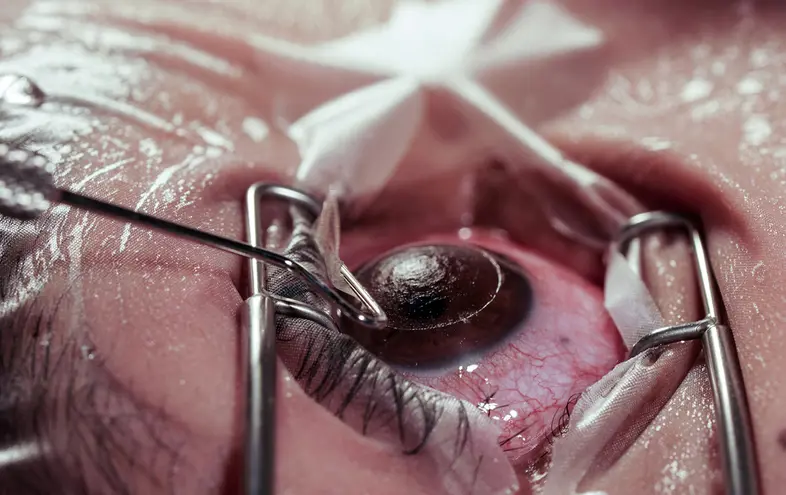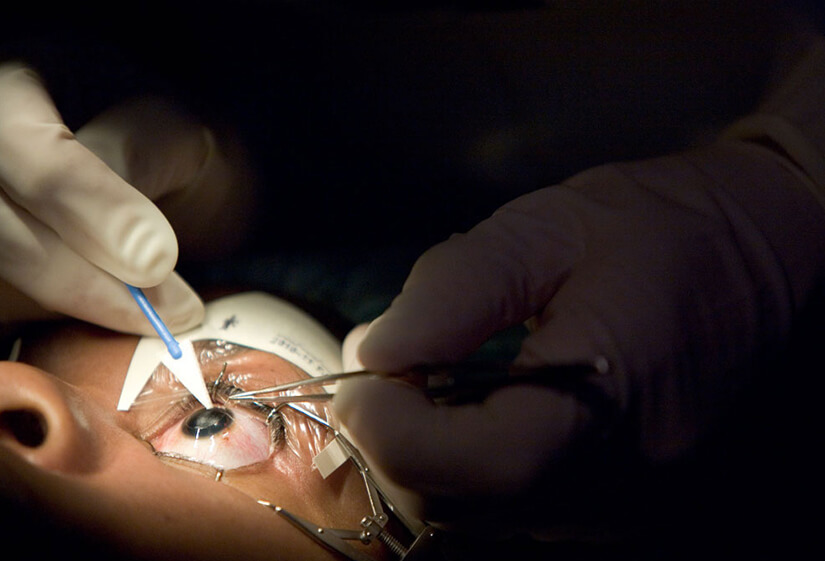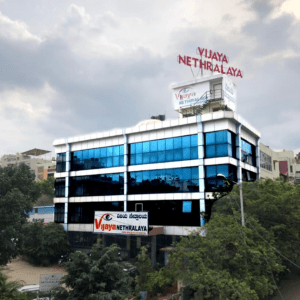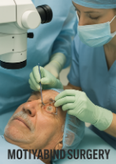Introduction:
Cataracts are a common eye condition that often develops with age, causing the lens of the eye to become cloudy. This cloudiness leads to blurry vision, difficulty seeing at night, and sensitivity to light. If left untreated, cataracts can worsen over time, potentially leading to significant vision loss.
The good news is that cataracts can be treated with surgery, which is one of the safest and most effective procedures available today. Modern advancements, such as laser cataract surgery, have made the process even more precise, offering faster recovery and improved results.
If you’re experiencing vision problems due to cataracts, consulting an eye doctor can help determine the best course of action to restore your clear vision. They develop when the natural lens of the eye becomes cloudy, causing blurry vision, glare, and difficulty seeing clearly at night. Fortunately, cataract surgery is a highly effective solution, and with advancements in technology, laser cataract surgery has become a preferred choice for many patients.
What is Laser Cataract Surgery?
Laser cataract surgery is an advanced method of removing cataracts using laser technology instead of traditional surgical tools. A high-precision laser is used to make incisions, soften the cataract, and assist in breaking it apart for removal. This technique allows for greater accuracy, reducing the chances of complications and improving overall outcomes.
Understanding Cataract Surgery
Cataract surgery is a highly successful procedure that removes the clouded lens in the eye and replaces it with a clear, artificial lens (IOL) to restore vision. It’s quick, typically lasting 20-30 minutes, and most patients experience improved vision soon after. Advances like laser-assisted cataract surgery have made the process more precise, with reduced recovery time and fewer complications. This surgery offers a safe and effective solution to regain clear vision and improve quality of life. It involves removing the cloudy lens and replacing it with an artificial intraocular lens (IOL) to restore clear vision.
There are two main types of cataract surgery:
- Traditional Cataract Surgery (Phacoemulsification): A manual process where the surgeon uses handheld tools to make incisions and break apart the cataract.
- Laser Cataract Surgery: A laser is used for incisions and cataract removal, providing greater precision and faster recovery.
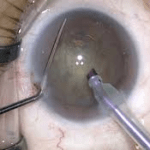
What is LASIK and How is it Different from Cataract Surgery?
LASIK (Laser-Assisted In Situ Keratomileusis) is a laser eye surgery designed to correct refractive errors like nearsightedness, farsightedness, and astigmatism by reshaping the cornea.
- Key Difference: LASIK reshapes the cornea without replacing the lens, while cataract surgery removes and replaces the lens itself.
How Does Traditional Cataract Surgery Work?
In traditional cataract surgery, the surgeon:
- Makes a small incision in the cornea using a scalpel.
- In traditional cataract surgery, phacoemulsification uses ultrasound waves to break the cloudy lens into smaller pieces, which are then removed and replaced with a clear artificial lens.
- Removes the fragments and replaces the cloudy lens with an artificial one (IOL).
Traditional surgery is highly effective but requires manual precision and carries a slight risk of complications.
How is Laser-Assisted Cataract Surgery Performed?
Laser cataract surgery follows these steps:
- Advanced imaging is used to map the eye in detail.
- A femtosecond laser creates precise incisions in the cornea.
- The laser gently softens and fragments the cataract, making it easier to remove during surgery..
- An artificial lens (IOL) is inserted to replace the cloudy lens.
Benefits of Laser eye surgery for cataract
1. Enhanced Precision
- Lasers create accurate incisions, reducing errors.
- Ideal for patients with astigmatism or complex cataracts.
2. Faster Healing
- Minimally invasive techniques result in less trauma to the eye.
- Patients experience quicker recovery and less discomfort.
3. Reduced Risk of Complications
- The automated laser reduces the margin for error, enhancing safety.
4. Astigmatism Correction
- The laser can reshape the cornea, reducing the need for glasses after surgery.
Drawbacks of Laser Cataract Surgery
1. Higher Cost
- Laser surgery is more expensive than traditional methods, often not fully covered by insurance.
2. Availability
- Not all clinics have the advanced equipment needed for laser cataract surgery.
3. Longer Preparation
- Pre-surgical imaging and laser calibration take more time than traditional surgery.
Is Laser Cataract Surgery Right for You?
Laser cataract surgery may be recommended if you:
- Have significant cataracts impacting your vision.
- Want faster recovery and greater accuracy?
- Have astigmatism that can be corrected during the procedure.
However, individuals with mild cataracts or financial constraints may opt for traditional surgery.
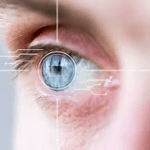
What to Expect with Laser eye surgery for cataract
Before Surgery
- Comprehensive eye exams and measurements.
- You may need to stop wearing contact lenses and start using prescribed eye drops.
During Surgery
- Numbing drops are applied; you stay awake but feel no pain.
- The procedure takes about 20 minutes per eye.
After Surgery
- You’ll rest briefly and return home the same day.
- Vision improves within a few days, with full recovery in 4-6 weeks.
Recovery Process of laser eye surgery for cataract
1. Initial Recovery (1-2 Days):
- Mild discomfort and light sensitivity.
- Vision may be blurry at first but improves quickly.
2. Full Recovery (4-6 Weeks):
- Avoid heavy lifting and strenuous activities.
- Use prescribed eye drops regularly to prevent infection.
Which Type of Cataract Surgery Has the Shortest Recovery?
Laser cataract surgery generally results in a shorter recovery time compared to traditional methods due to its precision and reduced trauma to the eye.
Risks and Complications of laser eye surgery for cataract
Although rare, risks include:
- Infection or inflammation.
- Retinal detachment.
- Posterior capsular opacification (PCO) – clouding of the lens capsule, which can be corrected with a laser procedure.
Posterior Capsular Opacification (PCO) for laser eye surgery for cataract
PCO is a common post-surgery condition where the lens capsule becomes cloudy, causing blurred vision. A quick laser treatment (YAG laser capsulotomy) restores clarity.

Cost of Laser Cataract Surgery
Laser cataract surgery typically costs between ₹40,000 to ₹1,20,000 per eye in India.
- Traditional Surgery: ₹15,000 to ₹40,000 (often covered by insurance).
- Laser Surgery: Higher cost, but offers improved outcomes.
Laser eye surgery for Cataract vs. Traditional Cataract Surgery
| Feature | Laser Cataract Surgery | Traditional Cataract Surgery |
|---|---|---|
| Precision | High | Moderate |
| Recovery Time | Faster | Slightly longer |
| Cost | Higher | Lower |
| Astigmatism Correction | Yes | No |
Conclusion
Laser cataract surgery represents a significant advancement in eye care, offering enhanced precision, quicker recovery, and improved vision correction. While it may come at a higher cost, the benefits often outweigh the expenses for patients seeking the best outcomes.
Consult your eye doctor to determine if laser cataract surgery is the right option for you.
Author Details:
Dr. Sushruth Appajigowda holds a prominent position as a Cornea, Cataract, Glaucoma, and LASIK Surgeon in Bangalore. He serves as the chief Cataract and Refractive surgeon at Vijaya Nethralaya Eye Hospital, Nagarbhavi Bangalore. Renowned as one of the finest LASIK surgeons nationwide, he brings with him over 12+ years of experience across multiple LASIK platforms, including ZEISS, ALCON, SCHWIND, AMO, and Bausch and Lomb. Having successfully conducted over 5000 LASIK procedures, Dr. Sushruth holds the title of a Certified Refractive Surgeon and a Fellow of the All India Collegium Of Ophthalmology. Furthermore, he stands as a distinguished speaker at various National and International Forums, using his expertise to guide you in selecting the most suitable procedure based on your health requirements.

http://vijayanethralaya.com/link-in-bio/
FAQs
1. What is laser cataract surgery?
Laser cataract surgery uses a laser to remove cataracts and replace the cloudy lens with a clear artificial one.
2. Is laser cataract surgery safe?
Yes, it is safe with a high success rate and minimal risks.
3. How long does the procedure take?
The surgery takes about 20-30 minutes per eye.
4. What is the recovery time?
Most patients recover within 4-6 weeks, with noticeable improvements in a few days.
5. How much does laser cataract surgery cost?
Costs range between ₹40,000 to ₹1,20,000 per eye, depending on the clinic and lens type.

